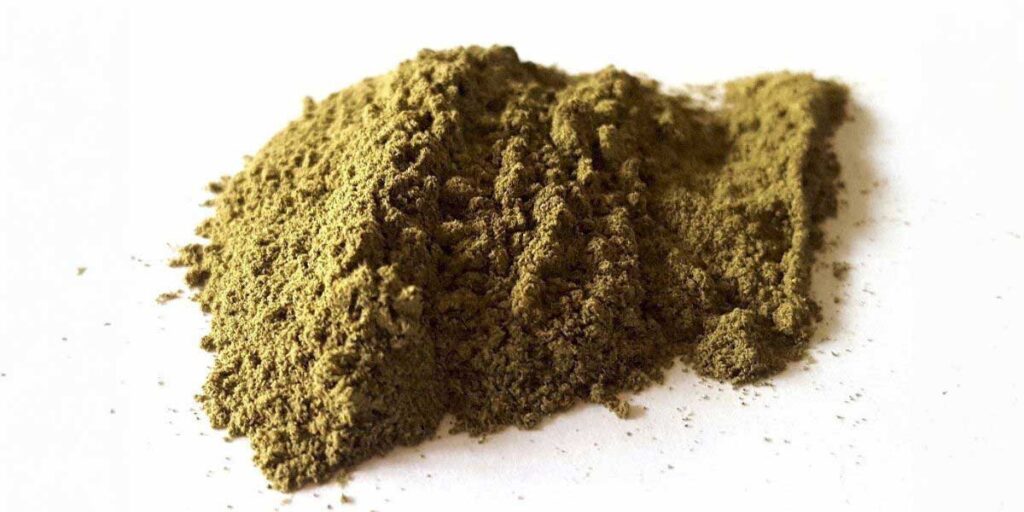Kratom Tea Health Risks and Side Effects

Kratom tea, made from kratom tree leaves (Mitragyna speciosa), has become popular recently as a natural treatment for different health issues. Kratom tea is sometimes seen as a safer option for pain relief or managing opioid withdrawal. Still, it can have serious health risks, drug interactions, and side effects that should not be ignored.
What Is Kratom?
Kratom is a plant that grows in tropical regions of Southeast Asia, including Thailand, Malaysia, and Indonesia. The local people have used kratom tree leaves for centuries for energy and pain relief.
In low doses, kratom acts as a stimulant, providing users with increased energy and focus. In higher doses, it can help with sleep. This makes it attractive for people with chronic pain. It is also used to help treat opioid use disorder.
In the United States, kratom is legal, though its use is highly controversial. The Food and Drug Administration (FDA) has warned consumers about the addictive potential of kratom and its associated dangers regarding concerns over its safety and efficacy.
The FDA has linked kratom products to deadly effects. It can affect brain opioid receptors. This may lead to addiction and other serious health problems.
While kratom is not classified as a controlled substance, certain states may have restrictions on its usage. Additionally, it lacks FDA approval for medical purposes, and the DEA has categorized it as a substance of concern.

Credit: Dominic Milton Trott
CC BY SA 4.0
Side Effects of Kratom Tea
Kratom tea is marketed as a natural and safe choice. However, it is important to know that it can have side effects. Some of the most common side effects include:
- Nausea and Vomiting: Many users report experiencing nausea and vomiting after consuming kratom tea, especially in high doses.
- Constipation: Kratom tea can lead to digestive issues, including constipation, which can be uncomfortable and potentially dangerous if it becomes chronic.
- Dry Mouth: A common side effect of kratom tea is dry mouth, which can lead to other dental issues if not managed properly.
- Loss of Appetite: Regular consumption of kratom tea can result in a decreased appetite, leading to weight loss and potential nutritional deficiencies.
- Drowsiness: In higher doses, kratom tea has sedative effects, causing drowsiness and impairing the ability to perform daily tasks safely.
- Increased Blood Pressure: Kratom can affect the cardiovascular system, leading to elevated blood pressure, which poses risks for those with pre-existing conditions.
Kratom Tea Health Risks
Kratom tea can cause long-term health problems, especially if taken in large amounts or for a long time. Some of these risks include:
- Dependence and Addiction: Kratom interacts with opioid receptors in the brain, leading to effects similar to those of opioids. This interaction can result in kratom addiction, where users develop a dependence on the substance, requiring larger and more frequent doses to achieve the desired effects.
- Liver Damage: There have been reports of liver toxicity involving kratom, with symptoms including jaundice, fatigue, and dark urine. Long-term use of kratom tea has been linked to liver damage, which can be severe and potentially life-threatening.
- Respiratory Issues: In high doses, kratom can cause respiratory depression, a condition where breathing becomes slow and ineffective. This is particularly dangerous for people with pre-existing respiratory conditions or when kratom is combined with other substances.
- Mental Health Conditions: While some users turn to kratom tea to alleviate anxiety and depression, long-term use can exacerbate these conditions. The stimulant effects of kratom can lead to heightened anxiety, while withdrawal symptoms may worsen depressive episodes.
- Increased Risk of Seizures: There is evidence to suggest that kratom use may increase the risk of seizures, particularly in people with a history of seizure disorders or those using other substances that lower the seizure threshold.
Symptoms of Kratom Withdrawal
For people who have become dependent on kratom, withdrawal can be a challenging and uncomfortable process. The symptoms of kratom withdrawal are similar to those experienced during opioid withdrawal, including:
- Muscle Aches and Pains: One of the most common symptoms of kratom withdrawal is muscle pain, which can range from mild discomfort to severe aches.
- Insomnia: Difficulty sleeping is a frequent complaint among those going through kratom withdrawal. This can further exacerbate feelings of fatigue and irritability.
- Irritability and Agitation: Emotional instability is typical during kratom withdrawal, with people experiencing heightened irritability, agitation, and mood swings.
- Runny Nose and Sweating: Physical withdrawal symptoms include a runny nose, sweating, and other flu-like symptoms, which can be particularly uncomfortable.
- Nausea and Vomiting: Just as nausea is a side effect of kratom use, it can also be a symptom of withdrawal, often accompanied by vomiting.
- Cravings: As with other addictive substances, people withdrawing from kratom often experience strong cravings for the drug, making it difficult to quit without support.

Kratom Addiction Treatment at Northridge Addiction Treatment Center
If you or someone you love is struggling with kratom dependence and addiction, it’s important to seek professional help. At Northridge Addiction Treatment Center (NATC), we understand the complexities of substance abuse and provide caring, comprehensive, and evidence-based residential addiction treatment tailored to the needs of each resident.
At NATC, we offer a safe and supportive environment where people can focus on their recovery without the distractions and triggers of everyday life.
Whether you’re dealing with kratom withdrawal symptoms or struggling with opioid addiction, our various treatment programs are intended to be customized according to your immediate needs and goals in medical detox, surrounded by around-the-clock care and during every other step of treatment.
Contact NATC today to learn more about our programs and take the first step toward a healthier, addiction-free life.
A path to a happy life free from substance use is possible. Reclaim your life today.
Find Meaningful Recovery
Our caring and compassionate specialists are eager to help you comfortably navigate this journey to recovery. Our individualized treatment plan, programs, and therapies may be a perfect match for you or your loved one. Let us assist you in living the happy life you deserve. It starts with a phone call.




